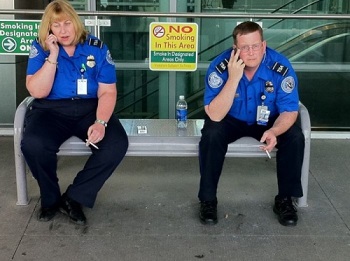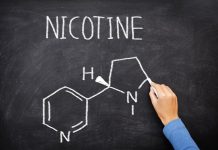When you have a tough, stressful job like being a police officer, smoking can seem like an appealing habit. But for both your health and your stress level, kicking tobacco gives you the best chance of feeling better.
 When you think about the dangers of working in law enforcement, you’ll probably think about the risks of being shot or other direct consequences of working as a cop. It isn’t surprising to learn that life expectancy for police officers is lower than for members of the general population. However, the lower life expectancy for police officers is less to do with direct on-the-job hazards and more to do with indirect consequences of working in law enforcement. The link between smoking and law enforcement work is one of these crucial indirect hazards, and understanding why cops might be at increased risk of smoking is easy when you consider their working environment.
When you think about the dangers of working in law enforcement, you’ll probably think about the risks of being shot or other direct consequences of working as a cop. It isn’t surprising to learn that life expectancy for police officers is lower than for members of the general population. However, the lower life expectancy for police officers is less to do with direct on-the-job hazards and more to do with indirect consequences of working in law enforcement. The link between smoking and law enforcement work is one of these crucial indirect hazards, and understanding why cops might be at increased risk of smoking is easy when you consider their working environment.
Smoking Rates Among Police Officers
Smoking rates among police officers are generally higher than corresponding rates in the general population. A review of the evidence on smoking and alcohol use among police officers pointed to a study from the late-1980s showing that police officers have one of the highest smoking rates of all professions in the U.S.. However, studies on the precise smoking rate among police officers aren’t very common. An expert in the area, John M. Violanti, estimates that up to 40% of police officers use a tobacco product.
These high smoking rates are one of the proposed explanations for the higher rate of conditions such as cancer among law enforcement officers. There are other contributing factors too, such as exposure to pollution from vehicles and shift work (including night shifts), but smoking still has a definite role to play in explaining the discrepancy.
Stress Among Law Enforcement Workers and Smoking
The reasons for increased rates of smoking among police officers are complex and multi-faceted, but the simplest and most compelling explanation is the stress they experience.
Stress has a well-documented relationship with smoking, and police officers have to cope with it in various forms, including direct risks of being on the job, interruptions to sleeping patterns, working varying shifts, the pressure inherent in the responsibility for protecting citizens, the requirement to control emotions while on the job, seeing so many people in pain and distress and more.
Coping with stress is a challenge for everybody, regardless of your job or life situation. For law enforcement officers, with many sources of stress, the challenge is even greater. The relationship between working in law enforcement and smoking comes down to a poor coping mechanism for this stress.
Police officers drink alcohol more often than the general population, in part to cope with this stress, and they also smoke more than the general population for the same reason. Many people who smoke often do so to relax, and this is no different for police officers.
Why Smoking to Reduce Stress is Counterproductive
While you may experience some short-term relief from stress as a result of smoking, there are many downsides that underline the problems with this coping mechanism. The first and most obvious is the wide range of health problems that result from smoking. Even if smoking was excellent for stress relief, this would be more than enough reason to avoid it.
However, the effectiveness of smoking for stress relief is questionable. The dopamine released in the brain when you smoke a cigarette may superficially produce a sense of relief, but in reality the true source of the stress remains unchanged, and as soon as the effects of the cigarette fade, it will return. Dealing with stress means tackling the underlying cause of stress, and if that isn’t possible, there are more versatile and less harmful coping mechanisms that can be used.
Additionally, as many smokers who’ve successfully quit or tried to will testify, withdrawal from nicotine can also cause stress, so on the whole the strategy is likely to increase stress rather than decrease it.
Helping Law Enforcement Officers Quit and Stay Smoke-Free
With the increased smoking rates among law enforcement officers, helping more of them quit smoking is a big priority. On the whole, police officers can use the same methods as other smokers to quit. This includes medications such as Chantix, counseling and behavioral support, and alternative sources of nicotine such as nicotine replacement therapy products, smokeless tobacco and e-cigarettes.
The latter options are particularly useful if the officer is struggling to abstain from all nicotine use. Studies of obstacles to smoking cessation among police officers have found that 55% report loss of stress relief as one of the main obstacles, alongside half reporting the loss of enjoyment from smoking. Although continuing nicotine use isn’t the ideal solution, it may be the lesser of two evils for those unable or unwilling to completely stop using nicotine-containing products.
However, the significant role of stress in smoking among law enforcement officers means that teaching alternative stress management techniques would be extremely valuable. The benefits of this would extend beyond smoking, potentially reducing rates of drinking and other drug use among police officers too.
Regardless of the approach used, the decreased lifespan of those working in law enforcement is a huge cause for concern, and needs to be addressed as quickly and effectively as possible.





